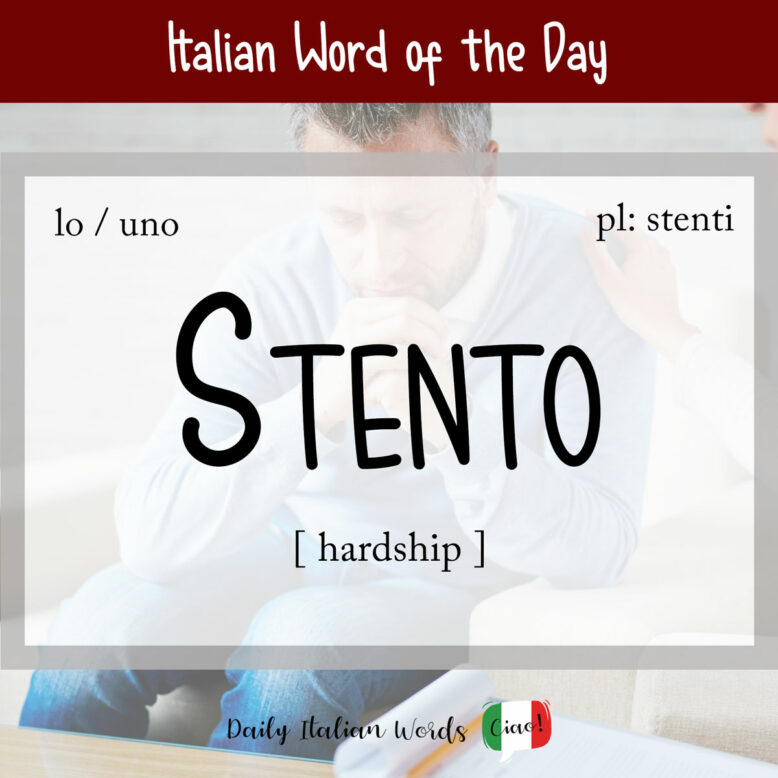The masculine noun stento in Italian is used to describe a situation of severe suffering or privation, much like the word hardship in English.
stento
hardship

It derives from the verb stentare which translates as to struggle, to find difficult or to scrape by.
Because stento begins with the letters st-, it takes the following definite and indefinite articles:
- lo stento = the hardship
- gli stenti = the hardships
- uno stento = a hardship
- degli stenti = (some) hardships
A few common expressions in which stento appears in its plural form stenti include:
- vivere fra/tra gli stenti = to live in poverty
- crescere fra/tra gli stenti = to grow up in poverty
- morire fra/tra gli stenti = to die in poverty
- fare una vita di stenti (also valid with the singular di stento) = to live a life of hardship
Lo hanno salvato da una vita di stenti e sfruttamento.
They saved him from a life of hardship and exploitation.

More generally, stento can mean difficulty or struggle, and in this sense, it often appears in the expression con stento, which means with difficulty.
Ha finito il compito con molto stento.
He completed the task with great difficulty.
A stento, on the other hand, is a synonym for a malapena, usually translating as barely or hardly in English.
Dopo l’incidente, Elia si reggeva a stento sulle gambe.
After the accident, Elia could hardly / barely stand up.
Heather Broster is a graduate with honours in linguistics from the University of Western Ontario. She is an aspiring polyglot, proficient in English and Italian, as well as Japanese, Welsh, and French to varying degrees of fluency. Originally from Toronto, Heather has resided in various countries, notably Italy for a period of six years. Her primary focus lies in the fields of language acquisition, education, and bilingual instruction.


